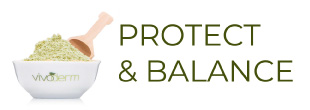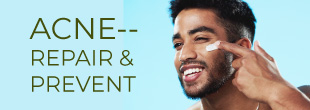Skin Care Myths (part1)
According to leading dermatologists, most of the cosmetic and skin care information out there is misleading. For example, do you buy into any of these common beauty myths?
Myth # 1: The way find the right skin care product is by buying many different products until you find one that works for you (if you are lucky). Actually, this approach works well for the cosmetics industry, but it’s not so good for you, unless you happen to have loads of money, tons of free time, and a desire to experiment on your skin. Yet, that’s the way most people purchase skin care products and services. Without knowing your skin type and being directed to the range of products that work well for it, you are at the mercy of marketers and advertisers.
Because of the way that they are regulated by the FDA, cosmetic companies cannot lay claim to any biological activity – meaning they can’t say a cream will repair your wrinkles. If they did, their products would be regulated as drugs, with costly clinical trials needed to validate their claims. Instead, they make vague marketing statements. No wonder people are confused. However, a dermatologist can reveal the biological effects of different products to cut through the hype.
Myth #2: The more expensive a product, the better it will work.
What does the high price tag on that designer skin cream buy you? Not the ingredients in the bottle. Instead, most often you are footing the bill for the marketing and bottling of that product. In fact, if tomorrow someone invented the world’s best skin cream, they could sell the rights to market it to different segments of the skin care marketplace, and very likely the only difference between the drugstore item, the department store brandname version, and the special edition sold by dermatologists would be – you guessed it – the packaging and price. However, the creams contained therein could well be absolutely identical. Maybe some day, the high-end lines will really be worth the extra expense because they are packed with ingredients that can deliver real results.
Myth #3: Fragrance-free products contain no perfume or fragrance.
People with sensitive skin often buy products with this misleading labeling, hoping to avoid ingredients they react to. “Fragrance-free” is no guarantee that the product does not contain perfumes or fragrances. It means that no fragrance is detectable by the average person’s sense of smell. In fact, fragrances are added to most face creams to neutralize their bad odor. Have you ever noticed that your old makeup foundation smells funny? That’s because over time the fragrances evaporate, leaving the unpleasant smell unmasked. For most people, this doesn’t matter so much, but if you have sensitive skin, you may need to find roducts completely free of these sensitizing ingredients.




